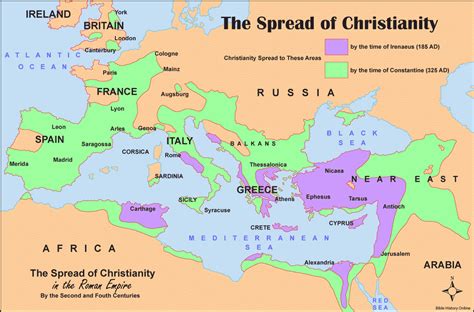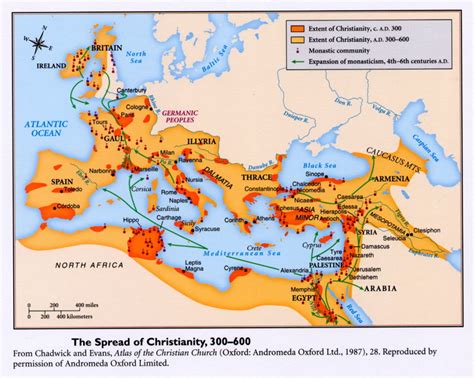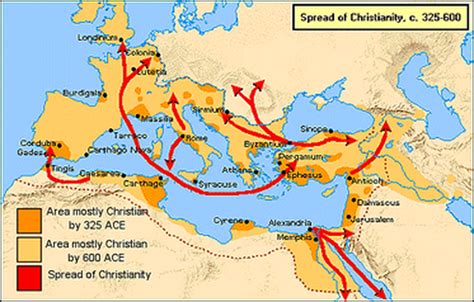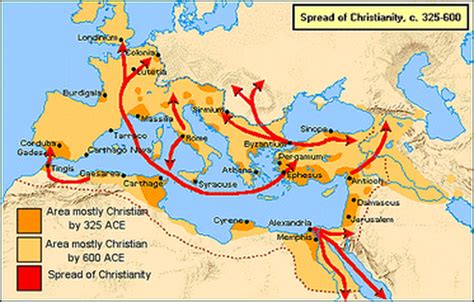The spread of Christianity from Jerusalem to Rome is a captivating story of faith, perseverance, and cultural transformation. This article explores the intricate journey of how Jesus’ teachings, originating in Jerusalem, eventually reached the heart of the Roman Empire. We’ll examine the crucial roles played by early apostles, the impact of Paul’s missionary journeys, and the historical context that facilitated this remarkable expansion. From the streets of Jerusalem to the grandeur of Rome, discover how a small religious movement grew to become a dominant force in Western civilization.
The journey of Christianity from Jerusalem to Rome was not a straightforward path but a complex interplay of religious fervor, political dynamics, and social change. The early Christian community in Jerusalem, led by figures like Peter and James, laid the foundation for the faith’s expansion. However, it was the tireless efforts of Paul, formerly known as Saul of Tarsus, that truly propelled Christianity beyond its Jewish roots. Through his extensive travels and letters, Paul spread the message of Jesus to diverse communities across the Mediterranean. This period of growth was marked by both persecution and acceptance, as the new faith navigated the complexities of Roman society and law. The arrival of Christianity in Rome, the capital of the empire, marked a turning point, setting the stage for its eventual adoption as the official religion of the Roman Empire centuries later.
The Spread of Christianity: From Jerusalem to Rome

The spread of Christianity from Jerusalem to Rome marks one of the most significant religious and cultural transformations in history. Beginning in the holy city of Jerusalem, where Jesus Christ lived and preached, the Christian faith rapidly expanded throughout the Mediterranean world, ultimately reaching the heart of the Roman Empire. This journey, spanning thousands of miles and several decades, was fueled by the passion and dedication of early Christian missionaries, most notably the apostles Peter and Paul.
The expansion of Christianity can be traced through several key stages:
- Initial preaching in Jerusalem and Judea
- Spread to Samaria and surrounding regions
- Expansion to Antioch and other Gentile areas
- Paul’s missionary journeys throughout Asia Minor and Greece
- Establishment of Christian communities in Rome
The Roman Empire’s extensive network of roads and sea routes played a crucial role in facilitating the spread of Christianity. Missionaries like Paul utilized these trade routes to travel vast distances, preaching the gospel and establishing new Christian communities along the way. The cosmopolitan nature of the Roman Empire, with its diverse population and relative ease of travel, provided fertile ground for the growth of this new faith.
Key Figures in Early Christian Expansion

The expansion of Christianity from its humble beginnings in Jerusalem to its eventual establishment in Rome was largely due to the tireless efforts of several key figures who played pivotal roles in spreading the Gospel. These early Christian leaders, through their unwavering faith and dedication, laid the foundation for what would become one of the world’s largest religions. Their journeys, often fraught with danger and persecution, took them across vast distances and diverse cultures, ultimately shaping the course of Western civilization.
One of the most influential figures in early Christian expansion was undoubtedly the Apostle Paul, formerly known as Saul of Tarsus. Originally a persecutor of Christians, Paul’s dramatic conversion on the road to Damascus transformed him into one of Christianity’s most fervent advocates. His missionary journeys, which took him from Jerusalem to various parts of the Roman Empire, including Greece and Asia Minor, were instrumental in establishing new Christian communities and spreading the teachings of Jesus Christ. Paul’s epistles, which form a significant portion of the New Testament, continue to be a cornerstone of Christian theology and practice.
Another key figure in the early spread of Christianity was Peter, one of Jesus’ original twelve apostles. Known as the ‘Rock’ upon which Jesus said He would build His church, Peter played a crucial role in the early Christian movement in Jerusalem and beyond. His leadership and preaching were instrumental in the rapid growth of the early church, and his eventual martyrdom in Rome solidified the city’s importance as a center of Christian faith. Peter’s influence extended far beyond his lifetime, with the Catholic Church tracing its papal lineage back to him as the first Bishop of Rome.
| Key Figure | Notable Contributions | Areas of Influence |
|---|---|---|
| Paul | Missionary journeys, Epistles | Asia Minor, Greece, Rome |
| Peter | Early church leadership, Martyrdom in Rome | Jerusalem, Rome |
| Barnabas | Missionary work with Paul, Advocate for Gentile inclusion | Antioch, Cyprus |
Barnabas, often overshadowed by Paul and Peter, was nonetheless a crucial figure in the early expansion of Christianity. A Cypriot Jew and an early convert to Christianity, Barnabas played a significant role in introducing Paul to the apostles in Jerusalem and later accompanied him on his first missionary journey. His advocacy for the inclusion of Gentiles in the Christian community was instrumental in broadening the appeal of the new faith beyond its Jewish roots. Barnabas’ work in Antioch, where followers of Jesus were first called ‘Christians,’ helped establish that city as an important center of early Christianity.
‘For I am not ashamed of the gospel, because it is the power of God that brings salvation to everyone who believes: first to the Jew, then to the Gentile.’ – Romans 1:16
Other notable figures who contributed to the early expansion of Christianity include:
- James, the brother of Jesus, who became a leader of the Jerusalem church and wrote the Epistle of James
- Philip the Evangelist, who spread the Gospel in Samaria and baptized the Ethiopian eunuch
- Timothy, Paul’s protégé and eventual Bishop of Ephesus
- Priscilla and Aquila, a married couple who worked alongside Paul and were instrumental in instructing Apollos
These early Christian leaders, through their tireless efforts and unwavering faith, paved the way for the Gospel to spread from Jerusalem to the far reaches of the Roman Empire, ultimately leading to its establishment in Rome and beyond.
The Role of Trade Routes in Spreading the Gospel

The ancient trade routes, particularly those connecting Jerusalem to Rome, played a pivotal role in the rapid spread of Christianity throughout the Mediterranean world and beyond. These well-established networks of commerce and communication served as conduits for the dissemination of the Gospel, allowing early Christian missionaries to travel far and wide, sharing their message with diverse populations along the way. The Roman Empire’s extensive road system, coupled with bustling sea lanes, provided an unprecedented opportunity for the early Church to expand its reach and influence.
One of the most significant trade routes that facilitated the spread of Christianity was the famous Silk Road, which connected the East and West. While primarily known for its role in the exchange of goods, this network of interconnected pathways also became a highway for ideas, beliefs, and cultural exchange. Christian merchants, travelers, and missionaries utilized these routes to carry their faith from Jerusalem to distant lands, establishing communities and churches in major trading hubs along the way. The strategic location of cities like Antioch, Alexandria, and Ephesus along these trade routes made them natural centers for the growth and development of early Christian communities.
The maritime trade routes across the Mediterranean Sea were equally crucial in the expansion of Christianity. Seaports such as Caesarea, Corinth, and Ostia became gateways for the Gospel to reach new shores. The apostle Paul, one of the most influential figures in early Christian expansion, frequently traveled these sea routes during his missionary journeys. His epistles, which form a significant portion of the New Testament, were often carried along these same trade routes, reaching far-flung Christian communities and solidifying the doctrinal foundations of the early Church.
Early Christian Communities and Their Impact on Rome

The early Christian communities that emerged in the wake of Jesus’ ministry in Jerusalem played a pivotal role in shaping the religious landscape of the Roman Empire. These communities, often referred to as house churches, began to spread throughout the Mediterranean region, carrying with them the teachings of Christ and establishing a network of believers that would eventually challenge the very foundations of Roman society. As the gospel message traveled along trade routes and through the efforts of dedicated missionaries, these small gatherings of faithful followers grew in number and influence, ultimately leading to a profound transformation of the empire itself.
The impact of these early Christian communities on Rome was multifaceted and far-reaching. One of the most significant aspects of their influence was the introduction of a new moral and ethical framework that stood in stark contrast to the prevailing Roman values. Christians emphasized concepts such as love, forgiveness, and equality before God, which challenged the hierarchical and often brutal nature of Roman society. This radical departure from traditional Roman values attracted many converts, particularly among the marginalized and oppressed populations, including slaves, women, and the poor.
As the Christian communities grew in size and visibility, they began to face increasing persecution from Roman authorities who viewed their beliefs and practices as a threat to the established order. However, this persecution often had the unintended effect of strengthening the resolve of believers and inspiring even more conversions. The courage and steadfastness displayed by Christian martyrs in the face of torture and death served as a powerful testament to the strength of their faith, further fueling the spread of Christianity throughout the empire.
Frequently Asked Questions

The journey symbolizes the spread of Jesus' teachings beyond Jerusalem, reaching the heart of the Roman Empire and establishing a foundation for Christianity to grow.Jesus likely would have taken a route through Samaria and then down to the coast, possibly traveling through cities such as Caesarea before heading north to Rome.While there is no biblical account of Jesus traveling to Rome, the journey reflects the importance of Rome as a cultural and political center, which later became crucial for the spread of His message.Historical accounts suggest that Jesus' teachings reached Rome through His disciples and early followers, influencing many and eventually leading to the establishment of a Christian community there.Initially, Roman authorities were tolerant of new religious ideas, but as Christianity grew, they began to see it as a challenge to their authority, leading to persecution.The Apostles, particularly Peter and Paul, played a crucial role in spreading the teachings of Jesus throughout the Roman Empire, ultimately reaching Rome, where Peter became a foundational figure in the early Church.The diverse cultural and religious landscape of Rome allowed for new ideas to be explored. As Christianity offered hope and inclusiveness, it resonated with various groups within Roman society.


